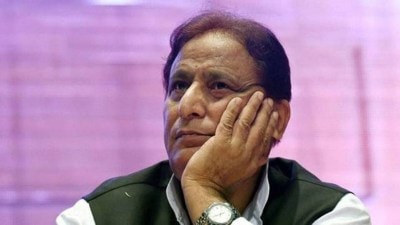SAARC dates in Pak: All say yes, India holds out
India's steadfast refusal to commit itself to the SAARC summit in Pakistan in January is having the unfortunate effect of increasingly isola...

India’s steadfast refusal to commit itself to the SAARC summit in Pakistan in January is having the unfortunate effect of increasingly isolating it from the rest of the region.
Significantly, five of the seven SAARC nations—Nepal, Bangladesh, Sri Lanka, Maldives and Pakistan, of course—are said to have told both the SAARC secretariat as well as the host, Islamabad, that they would be willing to attend the summit on the dates proffered by Pakistan, that is January 11-13.
India and Bhutan, a close friend of New Delhi, are the only two nations holding out. None other than Prime Minister A B Vajpayee has stressed in recent weeks that India will only participate if meaningful progress is at least made on regional economic integration.
At three back-to-back economic meetings in Kathmandu last week, on the SAARC free trade area as well as on the putative preferential trading regime—one of them at the level of regional Commerce secretaries—New Delhi pointed out that Pakistan was unwilling to offer any kind of meaningful tariff concessions.
As many as 146 out of 250 items offered by Pakistan as tariff concessions were put on its negative list even at Kathmandu, official sources here said, accusing Islamabad of ‘‘not being serious’’ about regional economic integration.
But analysts pointed out that even if New Delhi was seeking a ‘‘face-saver,’’ by pushing economics over the politics of cross-border terrorism, Islamabad was not doing anything to help out. Diplomatic sources, meanwhile, insisted that New Delhi ‘‘case on SAARC’’ was certainly not being helped by the boycott of the summit-level meeting.
The diplomats were speaking in the context of India refusing to attend the SAARC summit over 1999 and 2000, since New Delhi after Kargil, was not willing to be seen on the same stage as General Musharraf.
‘‘SAARC cannot be held hostage to bilateral issues,’’ the diplomats said, adding, ‘‘the rest of us have to get a move on.’’
Meanwhile, Pakistan is also said to be turning up the pressure region-wide. The SAARC secretariat, currently being held in Kathmandu in Nepal, has been told that unless all countries commit itself to dates ‘‘very soon,’’ possibly by the middle or third week of November, it may be difficult to hold the summit at all in January.
And yet, optimistic observers still see a ray of hope. A new government in Pakistan could take steps, both on controlling terrorism bilaterally as well as regional economic integration, which could in turn spur New Delhi to make matching gestures.
Even if the January summit becomes a casualty, the observers said, it could always be postponed for a later date next year.
Under the SAARC constitution, which works by consensus, a summit-level meeting can only be held if all seven countries agree to participate.
The refusal of even one member to attend—for which no reasons need be given—is enough to derail the high-level meeting for a whole year.
Photos



- 01
- 02
- 03
- 04
- 05




























